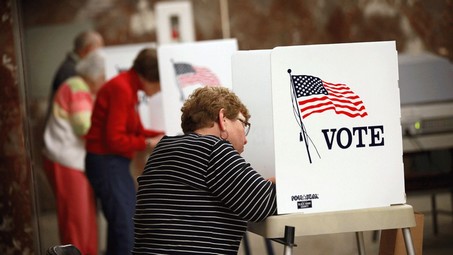Ted Cruz: If You Can’t Win Voters Buy the Delegates? #CruzCheat
Jazz Shaw,
Over the weekend we saw a lot of praise for Ted Cruz and his team’s savvy negotiations in North Dakota which resulted in many delegates being selected who were favorably inclined toward the Texas senator. But how exactly did that happen? We already know that, much like the case in Colorado, the voters were not allowed to weigh in on the delegate selection process. There was also some horse trading going on in Tennessee when some delegates put forward by Donald Trump were dropped off the list of those who would be going to Cleveland, replaced by people noted to be “anti-Trump” in their attitudes. (They still have to vote for Trump on the first two ballots, but after that they are free to abandon him and side with the candidate of their choice.) Not far off on the horizon is Pennsylvania, where the latest polls have Trump at 47%, but insiders in the Keystone State are already predicting that Cruz could clean up there with a huge slug of delegates. Again, Pennsylvania Republicans will have no say in who their delegates vote for.
All of this must have some newer observers wondering how this all works. How does one get delegates on their side if they aren’t bound by the will of the voters? I mean, you can’t just buy them, can you? As CNN reports this week, it’s not really that crazy of an idea.
Buying votes is illegal. But, it turns out, buying delegates might not be.
This summer’s Republican National Convention is shaping up to be an all-out brawl for every delegate’s vote — and legally, that could mean plying some of them with gifts, experts say.
There are federal and state laws prohibiting bribery of elected officials — and restrictions on campaigns themselves — but there isn’t much on the books governing what private citizens serving as delegates at their parties’ conventions can take in exchange for their votes on a nominating ballot. And in a fight between Donald Trump, Ted Cruz, John Kasich and perhaps an alternative not currently in the race, every delegate vote will matter.
This is a parallel situation to the question of how the parties organize their primary elections as compared to public elections for office seekers. There are strict rules and harsh penalties which come into play when you’re talking about an actual election, whether it’s for the presidency or your local village council. But the political parties are private clubs with the winners of these “elections” not being actual office holders who are answerable to the public. They’re just nominees, so the rules are far less intrusive.
This is clearly already on the minds of the candidates. When asked about this sort of wheeling and dealing, Trump adviser Barry Bennett said, “There’s obviously a big line — we’re not going to do anything immoral, illegal or unethical.”
Obviously.
But if you want to pretend these conversations aren’t taking place in the Cruz and Kasich camps, well… I’d love to know what color the sky is in your world. The campaigns are allowed to provide travel expenses, deliver “gifts” and make promises of future meetings and events in the home states of the delegates. If it walks like a duck and quacks like a duck you can all it an eagle all day long but you’re not going to be inspiring much confidence in the voters.
When we get to the finish line, this nomination could come down to a matter of less than a dozen delegates by some estimates. That’s just a smidgen of more than 2,400, and hundreds of them will not be bound to the will of the voters in their home states. Are they “up for sale” at this point? That’s probably a bit too cruel and overstated, but whatever the campaigns have cooking on the stove right now likely won’t smell very good to the rank and file Republicans around the country, no matter who they support. It’s time to fix this process at the national, state and local levels before it turns into even more of an embarrassment.

